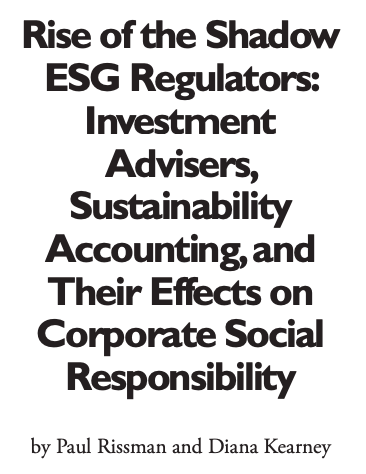This week, Senator Brian Schatz (D-Hawaii) and seven of his U.S. Senate colleagues wrote to many of America’s largest money managers demanding due diligence of the ways their portfolio companies affect environmental, social and governance risk, particularly in relation to deforestation. The letters state,
“It is our view that addressing risks from deforestation is in line with your fiduciary responsibility. As such we are interested in learning what due diligence and risk management procedures your firm has put in place to address and mitigate these risks.”
The senators are using their influence to emphasize the responsibility of investors as stewards of corporate behavior. This remarkable action demonstrates the potential to transform the world’s largest money managers into agents of positive change.
The power of investors to goad business on to a better path is the subject of my latest Rights CoLab article with Diana Kearny, published this month by the Environmental Law Reporter. In this paper, “Rise of the Shadow ESG Regulators: Investment Advisers, Sustainability Accounting, and Their Effects on Corporate Social Responsibility,” we argue that the interests and characteristics of shareholders are rapidly changing. Institutional investors have developed the motivation, as well as the means, to leverage their massive wealth-driven influence for good. These changes are underscored by last October’s publication of the Sustainability Accounting Standards Board corpus, which links financially material sustainability reporting by companies to money managers’ fiduciary duty.
Shareholders have been taking a beating lately, from both the left and the right. In our current gridlocked political climate, railing against shareholder power yields little expectation of any result. In the end, utilizing shareholder power, including partnership with the investment community, may prove to be a much more effective strategy to achieve corporate respect for human rights.
Photo by Jacalyn Beales on Unsplash



